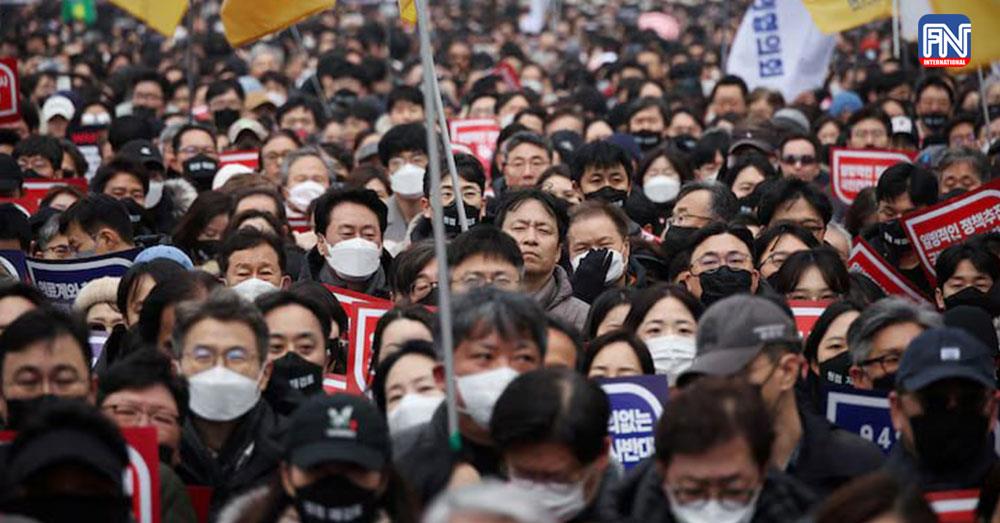SEOUL, Jun. 9 (Reuters) - South Korea's main doctors' lobby group said on Sunday it would go on strike on June 18 to protest the government's healthcare reform plan, defying a warning by the prime minister that such action would damage the credibility of the medical community.
The Korean Medical Association, which it says represents the country's 140,000 doctors, said 74% of the members who participated in a vote approved "collective action."
Association President Lim Hyun-taek said the government's plan would destroy the country's medical system and do nothing to change the chronic problems of fewer doctors working in essential disciplines and inadequate compensation.
"With the support of representatives throughout the country, the Korean Medical Association (KMA) will stand at the forefront of the fight to rescue the medical system," Lim told a meeting attended by representatives of various medical groups.
Lim said members would stop work on June 18 and there were plans for a mass rally.
South Korean doctors oppose a plan to increase the number of new students entering medical schools by 2,000 from the current 3,000, a centrepiece of the government's healthcare reform.
Thousands of trainee doctors which include medical interns and resident doctors walked off the job on Feb. 20, forcing major hospitals to cut back non-emergency services and turn back patients at the emergency rooms.
The government said the increase is necessary to make up an acute shortage of doctors which will worsen in the coming years.
Just before the KMA meeting, the government called on the group not to take any action that would put the public's safety at risk, saying it would deal a blow to the reputation of doctors and diminish trust in the medical profession.
Prime Minister Han Duck-soo said any collective action by the doctors was illegal and deeply regrettable and repeated the call for dialogue to resolve the standoff.
"The social trust that the medical community and patients have built over many decades must not be left to collapse because of radical demands by a few people," Han told a news conference.

Photo from Reuters